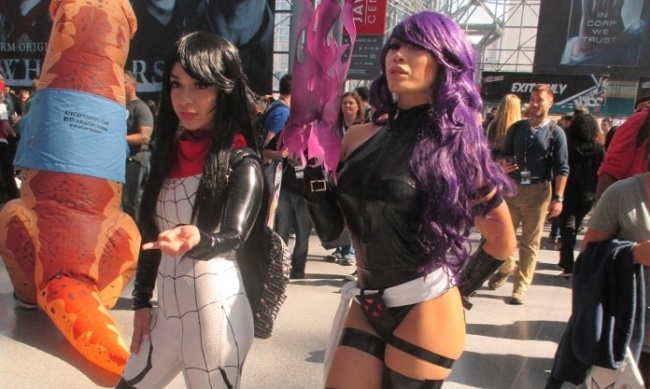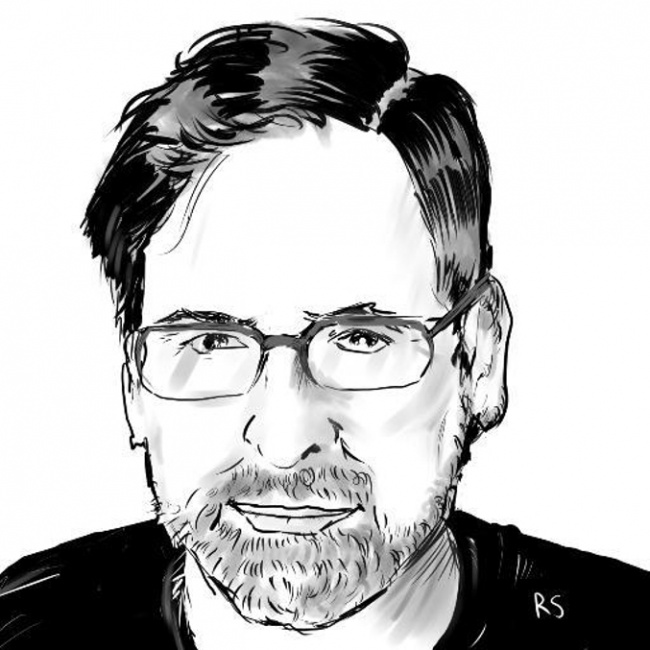Is anyone else old enough to remember when the “convention season” amounted to a handful of big shows starting in the spring with WonderCon and Emerald City, peaking in the summer with SDCC, and basically winding up in the Big Apple with New York Comic Con? Now fan conventions are an endless conveyor belt: a moebius strip of exclusives, experiences, celebrities, panels and parties that winds its way through the calendar year-round.
Even with New York Comic Con bearing down on the industry this week, there’s been a spate of new announcements on the business end worthy of note and comment.
All Things Considered, I’d Rather Be in Philadelphia... Just as I’m packing my bags for New York Comic Con, some news came over the wire that ReedPOP has announced another major US show for next year, Keystone Comic Con in Philadelphia, September 14-16, 2018. File this one under “inevitable surprise.” Philly, the fifth largest city in the US and easy driving distance from New York, DC and Baltimore, is a premier market whose biggest convention is typically Wizard World in late spring. There’s been talk of another big player moving in for some time, and ReedPOP is first out of the box with this announcement.
According to the release, Keystone Comic Con will feature familiar elements from ReedPOP’s other pop culture conventions, including New York Comic Con, C2E2, and Emerald City Comic Con, but “with a local twist that will be unique to the Keystone State.”
"Philadelphia continues to be a strong market for pop culture and comic book sales, and we are very excited to bring a ReedPOP experience to this region,” said Lance Fensterman, Global Head of ReedPOP. “We are talking with local fans and retailers to find out what they are most excited about so we can create a show unique to this market that will provide fans with the ultimate destination to come together for a world class celebration of pop culture.”
Philadelphia features a large convention center right downtown, convenient to tens of thousands of hotel rooms and directly across the street from the Redding Terminal train station, which is jammed with every conceivable food stall and restaurant. The city itself is reasonably-priced and walkable; even parking at commercial lots won’t necessarily break the bank.
I have often thought it would be the ideal location if Comic-Con International ever wanted to break out of California, but it appears ReedPOP has beaten them to the punch, at least in the fall timeframe.
He’s Back! News also broke last week that Wizard World founder Gareb Shamus and his brothers are back in the game with a new fan event business, Ace Universe (see “Shamus Brothers Back in the Convention Business.”) When their event on Long Island was announced earlier this month, it took about 24 hours for fans and professionals to get a handle on who was behind it, and whether the promises of premier guests like Gal Gadot and Henry Cavill were legitimate.
In a highly informative interview conducted with ICv2’s Milton Griepp, Shamus laid out his vision for the new enterprise. Of note is his plan to conduct the events in arenas rather than convention centers, including putting panels on the jumbotron so people can see what they’re missing without leaving the exhibit floor (see “ICv2 Interview” Gareb Shamus of Ace Universe”).
Kudos to Shamus for being willing to rethink the basics of the convention format. For decades, fan conventions have followed the template established in the 60s and 70s, with guests to attract fans, fans to attract exhibitors and dealers, programming to keep fans and pros occupied, and multiple streams of revenue to support the event organizers and offset facilities costs.
The shift to big name, big dollar celebrity appearances as the cornerstone of certain kinds of pop culture conventions in the Peak Geek era has put some of these assumptions out of whack. Celebrities absorb a huge amount of event cost and attendees’ dollars. Fans who are there to see celebrities and participate in 21st-century fan activities (cosplay, meetups, selfies and social-networking) don’t support the same kind of dealers who traditionally set up at shows.
The whole economy of photo-opps, autographs and meet-and-greets (not to mention show exclusives) is fundamentally different from comic and game shows that came before, but most of the industry continues to try to run events that are “the same but bigger” rather than addressing the differences head on.
More bad news from Wizard World. Perhaps the most visible example of the pains of adapting to the new fan economy is Shamus’s former company, Wizard World, which just announced another dire set of financial results and is cutting its 2017 schedule dramatically (see “Wizard World Cuts Eight Shows from Planned 2017 Schedule”).
Some of Wizard World’s troubles can be attributed to ongoing financial and management issues within the company, as I’ve written about extensively. But some of it may be symptoms of a larger problem of fan conventions that have extended to their limits in terms of market reach and scale.
Markets that can be well and profitably served by local organizers and non-profits, using tried-and-true formats appropriate for keeping 10-20,000 comic or gaming fans happy, are groaning under the strain of big, mass-produced celebrity-oriented shows. There are ways these shows can work, and ways that smart organizers can bring good convention experiences to smaller markets, but perhaps not both.
Wizard World’s ambitious 2018 schedule calls for several events in smaller markets like New Orleans, St. Louis and Portland, OR before its big Philly show in May. If things don’t improve for the company in Q4 of 2017 and Q1 of 2018, there might be another opportunity for a big player in addition to ReedPOP to move into Philadelphia in 2019.
Programming note: I’m excited to be presenting at the ICv2 Insider Sessions this Thursday at New York Comic Con. If you are interested in ways the pop culture business can use social media to jumpstart the next blockbuster, or in the future of digital comics on the 10th anniversary of ComiXology, or any of the other great topics on the agenda, I hope to see you there.
Rob Salkowitz (@robsalk) is author of Comic-Con and the Business of Pop Culture.
The opinions expressed in this column are solely those of the writer, and do not necessarily reflect the views of the editorial staff of ICv2.com.

Column by Rob Salkowitz
Posted by Rob Salkowitz on October 2, 2017 @ 2:20 pm CT



